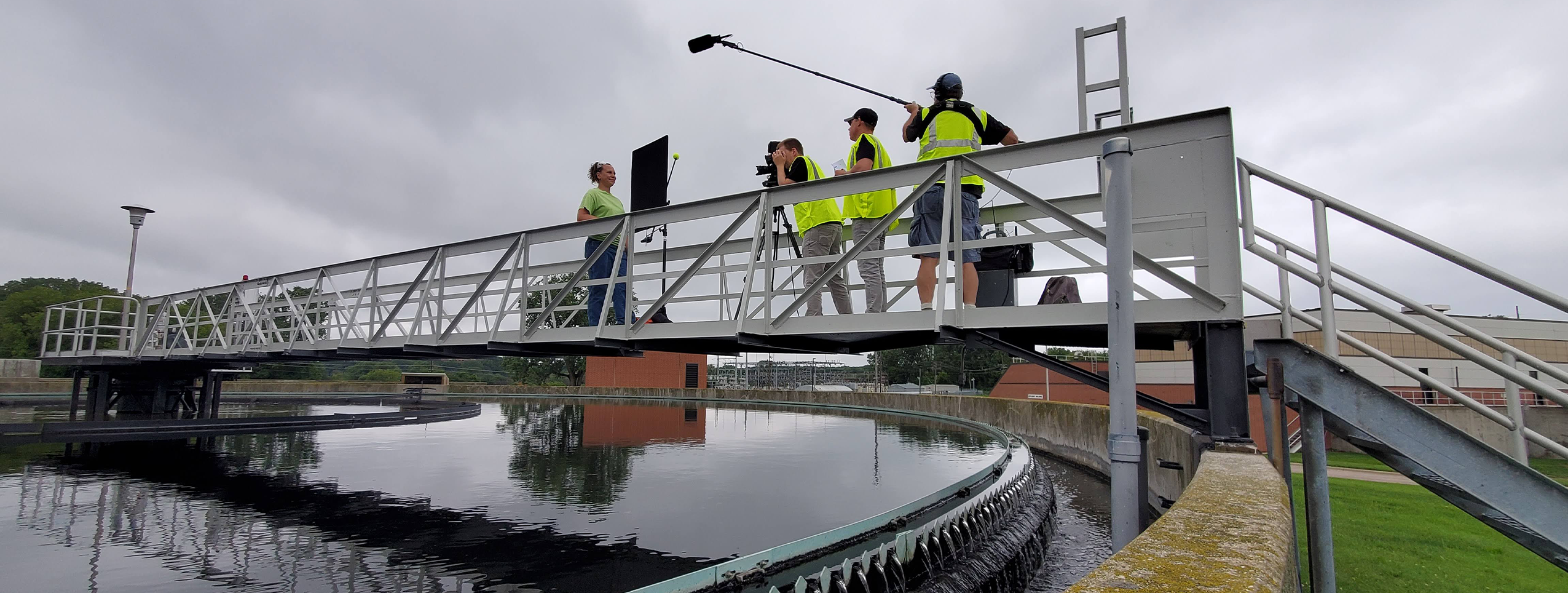It was then that I realized that regardless of how technically pure or good a solution is, it doesn’t matter if you don’t connect with your community and build their trust.
Through my professional career working for clean water utilities, I have learned an important truth: with the support of our engineering and operations staff, we thrive at solving technical problems. But today’s critical needs, such as gaining public trust, allaying fears, and demonstrating our value, present a unique set of challenges that require strategic communications.
I learned this 30 years ago as an assistant city engineer in Mequon, Wis. The city had a private water utility, and due to poor management, a subdivision in the community had basically run out of water. In my role, I heard residents’ fear and outrage going door to door communicating the city’s solution.
It was then that I realized that regardless of how technically pure or good a solution is, it doesn’t matter if you don’t connect with your community and build their trust.
When I joined Madison Metropolitan Sewerage District in 2011, communications was perceived as frivolous. Not being noticed by the greater community was a source of pride — it meant we were doing our job without issue. While this was a more comfortable position, I knew from experience that it would eventually catch us — and that was not a position I wanted for the District.
When I was hired, our Commission indicated it supported increasing our communications and outreach, but getting the resources needed was a tough sell. I built the case, and in 2015, we brought on a half-time communications professional. Over the next two years, we gained support for this work through small wins.
And importantly, we demonstrated the value of communications internally. For instance, engineers came to value how communications helped distill technical information and provide outreach support for projects.

What most helped our nascent communications program was a listen-first approach. Initially, our technical staff feared communications wouldn’t respect their expertise or would “dumb down” their work. But by serving as a resource, listening, and setting the tone for being a multidisciplinary team, communications became a respected and essential part of the organization.
Over the last eight years, I further learned the importance of not just having communications at the District but having communications at the decision-making table — communications is now a director-level position here.
This reflects the importance of having communications as a strategic advisor to provide counsel to mitigate risk on the increasingly complex issues we face: aging infrastructure, increased regulation, heightened public scrutiny for our projects, finances, operations, and more. With this counsel as a part of our Executive Team, communications can be strategic, timely, and proactive rather than something done after decisions are made.
Initially, it was terrifying to take this leadership position, but it has allowed us to build trust with the public we serve, our regulators, and our colleagues.
A key example of this is PFAS.
The District took an early lead on PFAS at the behest of our communications manager. With her outline of next steps, we developed the state’s first PFAS action plan. Through that, we began a sampling and analysis program, with no regulatory requirement, and made the results publicly available.
We developed a robust communications campaign to proactively serve as a resource in the absence of information on PFAS from other trusted messengers in our service area. We are public and transparent in what we know, don’t know, and how we’re working to address PFAS.
Initially, it was terrifying to take this leadership position, but it has allowed us to build trust with the public we serve, our regulators, and our colleagues.
As you can see, trust is an important throughline in all this.
As clean water utilities dedicated to protecting public health and the environment, building trust is one of our primary roles. We build capacity by having the public behind us, but to do that, we need to nurture that relationship. That requires us to be noticed and transparent about the good and bad. And we can do that with communications from the start to identify needs, develop strategies and tactics, ask tough questions, and anticipate concerns, sentiments, and roadblocks.

The stakes are too high today not to have communications at the table. Not being timely and strategic with communications can play out as the public opposing the rate increases needed to keep the utility operating safely and efficiently. It can result in policymakers getting frustrated and trying to “fix” things with draconian solutions. And worst of all, it can render us distrusted and irrelevant, a steep hole from which to climb.
Our utilities aim to pack as much of our ratepayers’ dollars into projects, operations, and maintenance — and rightfully so — but investments in support services like communications are also important. Selling the value of communications in our sector continues to be a challenge, but it has never been more important. For utilities that don’t already have communications professionals, start slow to go fast as the District did.
For those who have communications but don’t have them at the table, bring them forward as a strategic advisor. Trust is earned and not given, and communications plays a vital role in helping our utilities build and maintain this with our communities, now and into the future.